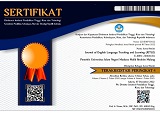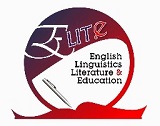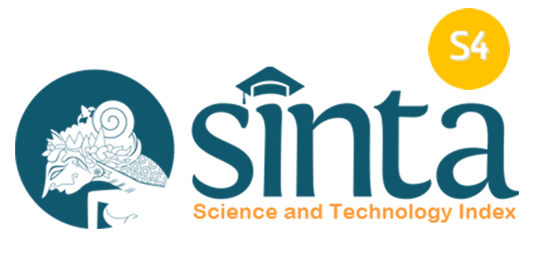The Effect of Team Games Tournament on Students' Reading Motivation and Reading Comprehension
Abstract
Full Text:
PDFReferences
Afflerbach, P., Cho, B. —Y., & Kim, J. —Y. (2015). Conceptualizing and assessing higher-order thinking in reading. Theory into Practice, 54(3), 203-212.
Anderson, N., J. (2012). Active Skill for Reading 3: Teachers Guide (2nd ed.). New York: Cengage Learning. Inc.
Burke, A. (2011). Group work: how to use group efectively. The Journal of Effective Teaching, 11(2), 87-95.
Cahyono, B. Y. & Widiati, U. (2016). The teaching of EFL reading in the Indonesian context: The state of the art. TEFLIN Journal, 17(1), 36-58.
Cambria, J. & Guthrie, J. T. (2011). Motivating and engaging students in reading. The NERA Journal. 46(1), 16-29.
Cristensen, L., B., Johnson, R.., B, & Turner, L. A. (2014). Research Method, Design and Analysis (12th ed.). London: Pearson.
Gozco, E. & Caganaga, C., K. (2016). The importance of using games in EFL classroms. Cypriot Journal of Educational Sciences, 11(3), 126-135.
McGeown, S. P. (2013). Reading Motivation and Engagement in the Primary School Classroom: Theory, Research, and Practice. University of Leicester: UKLA.
Nunan, D. (2003). Practical English Language Teaching. New York: McGraw-Hill Education.
Renandya, W. A. (2004). Indonesia. In H. W. Kam & R. Y. L. Wong (Eds.), Language policies and language education:The impact in East Asian countries in the next decade (pp.115-131). Singapore: Eastern University Press.
Slavin, R. E. (1995). Cooperative Learning (2nd ed.). Needham Heights, MA: Allyn & Bacon.
Tahrun. (2019). Sustaining interaction through group work in English foreign language classroom. International Journal of Educational Review. 1(2), 62-70.
Wang, Y. —J., Shang, H. —F., & Briody, P. (2011). Investigating the impact of using games in teaching children English. International Journal of Learning and Development, 1(1), 127-141.
Wigfield, A. & Guthrie, J. T. (1997). A Questionnaire Measure of Childrens Motivations for Reading. New York: National Reading Research Center.
Wulanjani, A., N. (2016). The use of vocabulary games in improving childrens vocabulary in English language learning. Transformatika, 12(1), 76-83.
DOI: https://doi.org/10.18860/jetle.v2i2.11884
Refbacks
- There are currently no refbacks.
Jalan Gajayana 50 Malang 65144, Jawa Timur, Indonesia

This work is licensed under a Creative Commons Attribution-ShareAlike 4.0 International License.
Indexed by





